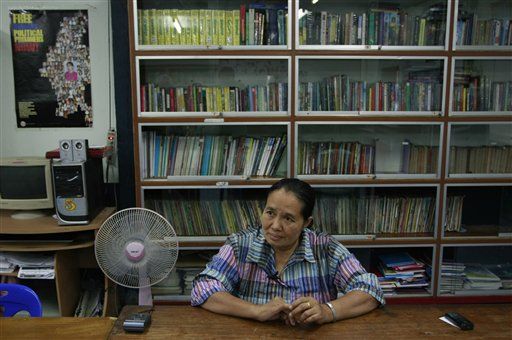The Australian government has announced that it will cut its 13 million baht (US$420,000) funding for the renowned Mae Tao Clinic, which has provided life-saving treatment to Burmese migrants and refugees on the Thai-Burma border for more than 25 years.
The news comes on the same week that its founder Dr Cynthia Maung received the prestigious Sydney Peace Foundation prize in recognition of her tireless humanitarian work spanning several decades.
The award is dedicated to people “whose life and work has demonstrated significant contributions to the promotion of human rights, peace and justice”, with past recipients including Archbishop Desmond Tutu and Prof Noam Chomsky.
Dr Cynthia, who set up the clinic shortly after the 1988 military crackdown in Burma, said she hoped that the award would draw greater international attention to the plight of ethnic minorities in Burma.
But according to a report in Karen News, she expressed personal “shock and pain” at the news that the Australian government has subsequently decided to terminate its funding to the clinic by the end of the year.
Their annual contribution has made up nearly a quarter of the clinic’s income, funding programmes on HIV care, child health and training for midwives.
Dr Cynthia insists that cutting funding is premature and places thousands of lives at risk.
[related]
“Australia should be scaling up support for community health networks, rather than abandoning them,” she told Karen News. “Cutting vital health services to the ethnic peoples is not the way to build trust in Burma’s peace process.”
In 2012, the clinic recorded over 150,000 patients, mainly migrant and refugee populations who do not have access to healthcare services in Thailand or Burma. Thousands of people make the perilous journey across eastern Burma by foot, navigating conflict zones and landmines to reach its doors.
But the Australian government is redirecting its development aid into mainland Burma, where a series of democratic reforms have won international praise.
“The government is encouraging the refugees [to] return from the border area and want projects that support that overall policy,” Kate Lee, executive officer of Union Aid Abroad, the clinic’s Australian partner organisation told Devex.
Several donor countries and organisations have already slashed funding for aid groups operating on the Thai-Burma border, squeezing essential services and care.
Some 130,000 refugees, mainly from Burma’s ethnic Karen population, are estimated to live in camps in western Thailand. But even though Karen rebels and the government have inked tentative peace deals, locals say it is too early to begin repatriating refugees – the vast majority of whom say they don’t want to return to Burma.
“There have been ongoing ceasefire talks, but on the ground … people are still suffering, [and have no access] to health services,” Dr Cynthia told Radio Australia. “Education and protection issues are still not addressed.”
Burma currently spends less than 4 percent of its annual budget on healthcare, compared to some 20 percent on the military. Poverty in rural areas has been identified as a leading cause of child deaths in Burma, where over 56,000 children under the age of five die every year.



